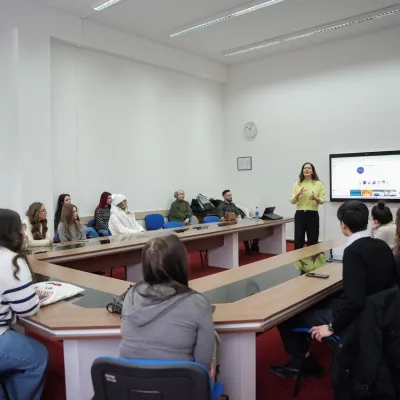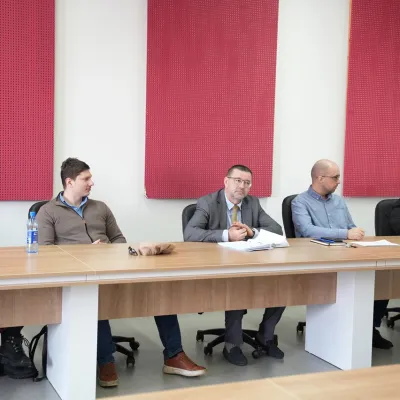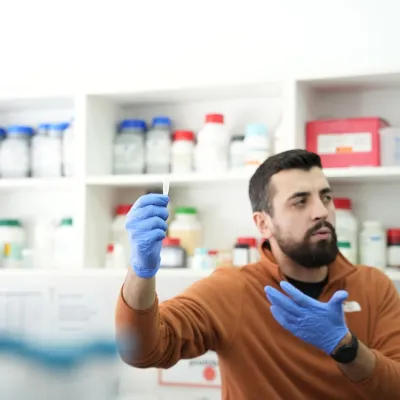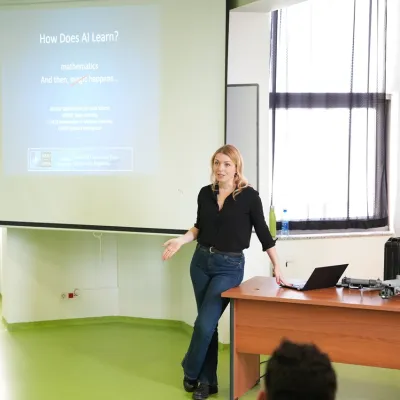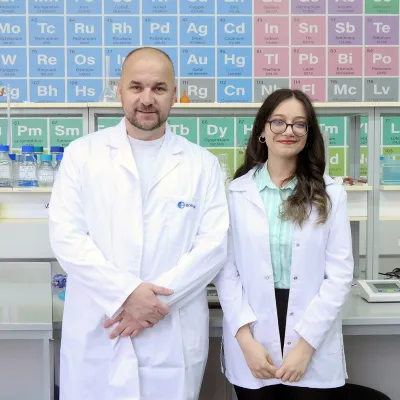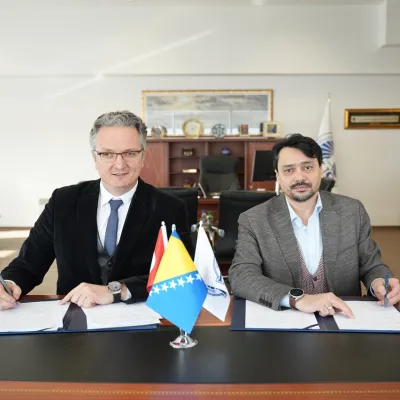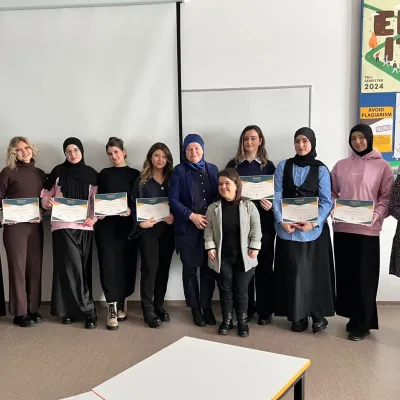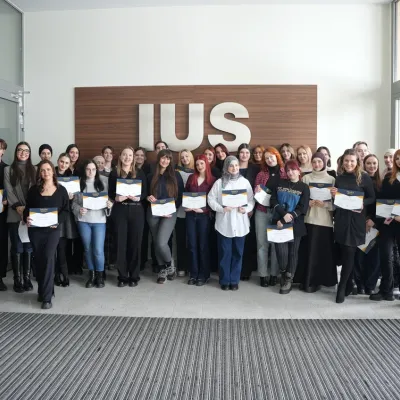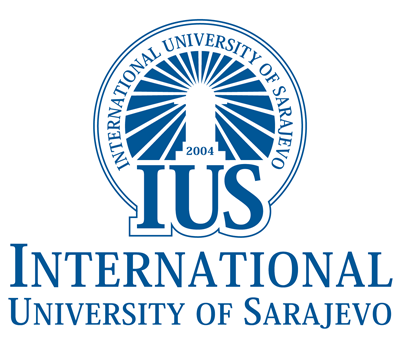Assistant Professor, Dr. Kanita Karađuzović – Hadžiabdić gives an interview to EHMA’s Executive Director on COVIRNA project
Assistant Professor, Dr. Kanita Karađuzović – Hadžiabdić from the International University of Sarajevo (IUS) gave an interview to the European Health Management Association's (EHMA) Executive Director, George Valiotis. Professor Dr. Karađuzović – Hadžiabdić and Mr. Valiotis talked about how the COVIRNA project first started, the role of AI and machine learning in developing the COVIRNA diagnostic tool, and the extensibility of the COVIRNA project to other pandemics. The project brings together 15 partners from 12 European countries and is funded through the European Union’s Horizon 2020 research and innovation program. The partner organizations represent complementary expertise including academia, research, industry, health managers, and healthcare professionals.
Professor Dr. Karađuzović – Hadžiabdić stated that the idea for this project was born in the early summer of 2020, as a response to Covid-19 pandemic. The project started in November 2021 and should be implemented within two years.
Talking about the benefits of the COVIRNA project, she noted that it will generate a novel diagnostic tool that will help healthcare providers improve individualized surveillance, care and follow-up of COVID-19 patients in the context of the current pandemic. She emphasized the importance of cardiovascular risks considering that patients diagnosed with Covid-19 experienced severe cardiovascular conditions with fatal outcomes. Although lungs are the main organs involved in COVID-19, one of the major systems affected by the virus is the cardiovascular system. The presence of preexisting cardiovascular disease increases mortality in patients with COVID-19, and cardiovascular injuries are observed in some patients with COVID-19. An innovative diagnostic tool which uses machine learning, a very important subdiscipline of Artificial Intelligence (AI), is convenient for processing bulky biomedical data. COVIRNA is a great example of how healthcare can be improved by adopting a personalized medical approach, and ultimately contribute towards alleviating the socioeconomic burden of the ongoing COVID-19 pandemic.














